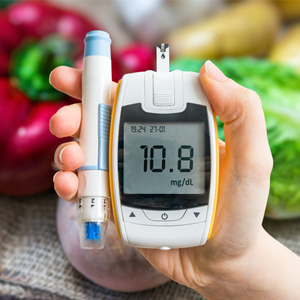
A commonly used diabetes test may not spot the disease as well as an older test does, a new study suggests.
The researchers said the newer test — called hemoglobin A1C — didn't catch three-quarters of the diabetes diagnoses found by the older test — called an oral glucose tolerance test.
Oral glucose tolerance test more cumbersome
"Diabetes is a global epidemic. Since the incorporation of A1C [as a test for diagnosis] in 2010, it's been relied on more and more for its convenience because patients don't have to fast. But it's not a perfect test," said study author Dr Maria Mercedes Chang Villacreses. She is an endocrinology fellow at the City of Hope National Medical Center in Los Angeles.
The oral glucose tolerance test "is more cumbersome to do, but it gives more of an idea of the physiology of the patient, she added.
"If you have a patient where you have risk factors for diabetes or you have a high suspicion of diabetes, you should go ahead and do the [glucose tolerance test]. If you rely only on A1C, you may miss an opportunity to intervene earlier," she said. That's important because good diabetes management can help prevent complications of the disease.
However, not everyone shares her concern about using the A1C test.
Dr Joel Zonszein, director of the clinical diabetes centre at Montefiore Medical Center in New York City, pointed out that the "A1C has been approved for the diagnosis and management of diabetes. It's a very practical test, but it's not perfect. A random A1C test gives us enough information to diagnose diabetes. It's a good tool."
Costly and inconvenient
He said the tests available to diagnose and manage diabetes all have their pros and cons. "It's not which is better. They each give us different information," he explained.
There are three types of blood tests that can be used to look for diabetes — the A1C, a fasting blood test or a random blood test, according to the US National Institute for Diabetes and Digestive and Kidney Diseases (NIDDK). The A1C allows doctors to get an idea of what your blood sugar levels are over a period of two to three months. Random and fasting blood tests show your doctor what your blood sugar level is at one point in time.
Fasting isn't required for either the A1C or the random blood test.
The oral glucose tolerance test is typically used for diagnosing diabetes in pregnancy (gestational diabetes), NIDDK said. The test requires you to fast for at least eight hours. Then your blood sugar level is measured when you get to the doctor's office. You then drink a sugary liquid and wait. Your blood sugar will be checked again, often multiple times. The test can take between one hour and three hours.
"A glucose tolerance test is costly and very inconvenient for patients," said Zonszein. He said the test is used in pregnancy and for research studies.
Unreliable results
The current study looked at 9 000 people over the age of 20. The study participants had both an A1C and an oral glucose intolerance test done.
The researchers said that the A1C test missed the diagnosis of diabetes in 73% of cases that were found by the glucose intolerance test.
The researchers don't know exactly why there was such a difference. There are known issues with the A1C test. The test gives slightly different results in black people and some Hispanic groups. Also, the A1C results can be unreliable in anyone with anaemia or certain blood disorders, according to Chang Villacreses.
The American Diabetes Association reiterated its recommendations that the fasting blood sugar test, A1C and OGTT are all "appropriate for diagnostic testing".
"While the issue of using the A1C test vs. OGTT as the primary diagnostic tool for type 2 diabetes has also been the subject of professional debate for a number of years, this retrospective analysis does not change the American Diabetes Association's recommendations and confirms multiple prior observations and studies," said Dr William Cefalu, the chief scientific, medical and mission officer of the ADA.
The findings were presented at ENDO 2019, the Endocrine Society's annual meeting, in New Orleans. Findings presented at meetings are typically viewed as preliminary until they've been published in a peer-reviewed journal.
Image credit: iStock




 Publications
Publications
 Partners
Partners















